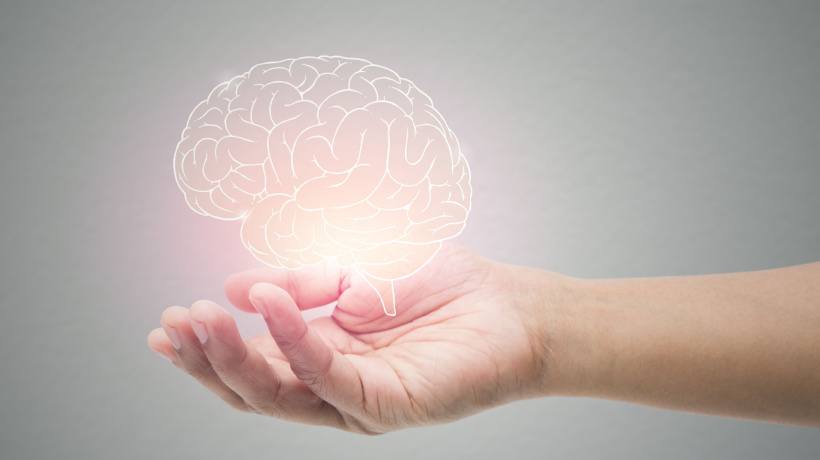Inside Look at a Leading Inpatient Mental Health Program Experience
Inside Look at a Leading Inpatient Mental Health Program Experience
Blog Article
Comprehensive Inpatient Mental Health Services for Effective Treatment
Inpatient mental health services stand for an essential part of the healthcare system, offering a organized and intensive environment for individuals experiencing severe emotional distress. Exploring the subtleties of this continuum exposes considerable ramifications for both specific healing and wider psychological health and wellness results.
Comprehending Inpatient Mental Wellness Providers
Inpatient mental wellness services offer important assistance for people experiencing extreme psychological distress that can not be taken care of effectively in an outpatient setup. These solutions are designed to offer an extensive degree of treatment in an organized atmosphere, frequently within a healthcare facility or specialized facility. People confessed to inpatient programs typically display acute symptoms, such as suicidal ideation, serious clinical depression, or psychosis, requiring day-and-night tracking and intervention.
The admission procedure usually includes a thorough analysis by mental health and wellness professionals, that assess the person's psychological state, history, and prompt requirements. Once admitted, people participate in a variety of restorative modalities tailored to their specific requirements, including drug monitoring, specific therapy, and group sessions. This alternative strategy aims to maintain the client's condition, advertise safety, and foster coping skills.
Inpatient mental wellness services not only address instant health issues yet likewise serve as a bridge to ongoing treatment. By providing a controlled setting, these solutions promote the development of therapy plans that can be proceeded in outpatient settings, hence making certain a continuum of treatment and improving long-lasting outcomes for individuals with intricate mental health and wellness requirements.
Trick Elements of Effective Therapy
Reliable treatment in inpatient mental health solutions comprises numerous key elements that promote healing and stabilization. A comprehensive assessment is essential to recognize the person's details requirements and difficulties. This evaluation informs the growth of a customized treatment strategy, which serves as a roadmap for intervention.
One more critical element is the multidisciplinary team strategy. Collaboration among psychoanalysts, psychologists, nurses, and social employees ensures that various perspectives add to the client's care, enhancing the performance of therapy. Evidence-based therapeutic methods, such as cognitive-behavioral treatment (CBT) and dialectical behavior modification (DBT), are likewise essential, giving organized strategies that resolve maladaptive thought patterns and behavior problems.

Finally, a concentrate on aftercare preparation is crucial to ensure a smooth change to outpatient solutions, reducing the danger of regression and promoting long-lasting wellness. These cumulative elements create a reliable treatment structure within inpatient mental wellness services.
Advantages of Comprehensive Care

Thorough care in inpatient mental health and wellness solutions offers many advantages that significantly improve individual end results. One of the primary advantages is the alternative strategy to therapy, dealing with not only the mental signs and symptoms yet also the physical, social, and emotional needs of individuals. This detailed assessment permits tailored interventions that promote overall wellness.
One more benefit is the combination of multidisciplinary teams, which promotes partnership amongst health care experts. This collective atmosphere guarantees that patients receive collaborated care, minimizing the threat of fragmented therapy and improving interaction amongst caretakers. Additionally, extensive treatment helps with connection of services, allowing for seamless changes from inpatient to outpatient settings, which is critical for long-term recuperation.

Last but not least, the organized setting of detailed inpatient care offers a safe space for patients to participate in healing tasks, assisting them establish coping strategies and strength. Jointly, these benefits contribute to more reliable therapy and enhanced lifestyle for individuals experiencing psychological health and wellness crises.
Evidence-Based Therapeutic Approaches
In the world of psychological health therapy, evidence-based healing techniques play an important role in ensuring that people get effective and medically sustained interventions. These strategies incorporate the very best readily available study with medical expertise and person values, fostering a customized treatment experience that resolves private needs.
Cognitive Behavioral Therapy (CBT) is just one of the most commonly identified evidence-based methods, concentrating on identifying and altering adverse thought patterns and behaviors. This organized strategy has shown efficiency in treating conditions such as depression, ptsd, and stress and anxiety. Dialectical Behavior Therapy (DBT) is particularly effective for people with borderline personality disorder, stressing the development of psychological regulation and interpersonal efficiency abilities.
Furthermore, drug management is usually an indispensable part of evidence-based therapy, as psychotropic drugs can ease symptoms and improve total performance. Collective treatment versions, which entail multidisciplinary groups, further boost the efficacy of inpatient solutions by making certain thorough examinations and constant monitoring.
Ultimately, the assimilation of evidence-based restorative methods not only promotes favorable scientific results but additionally equips patients, cultivating a sense of agency and strength in their mental health trips.
Transitioning to Outpatient Support
The change from inpatient mental wellness services to outpatient assistance marks a crucial stage in a client's recovery trip. This period needs careful preparation and coordination to make sure continuity of treatment and to mitigate the dangers of relapse or dilemma. Reliable discharge planning need to commence early in the inpatient keep, involving a multidisciplinary group that includes psychiatrists, psycho therapists, nurses, and social employees.
Crucial element of an effective transition consist of the growth of an extensive aftercare strategy tailored to the individual's details needs. This plan needs to describe follow-up visits, drug management, and restorative treatments, as page well as determine neighborhood sources and support groups that can assist in recurring recovery.
Furthermore, individual and family members education is important throughout this stage. Recognizing the signs check this of potential obstacles and the relevance of sticking to therapy can empower clients and their support systems.
Routine follow-up and review of the outpatient strategy are vital to address evolving challenges. By promoting a collective connection in between outpatient and inpatient carriers, the likelihood of sustained recovery increases, ultimately enhancing the patient's quality of life and reducing the risk of readmission.

Conclusion
In summary, thorough inpatient mental health solutions supply an important framework for resolving extreme psychological distress with a multidisciplinary technique. By incorporating evidence-based treatments, fostering a structured atmosphere, and advertising family members participation, these solutions enhance treatment effectiveness. The emphasis on stability and the advancement of dealing abilities not just help in prompt recovery but also helps with a smoother shift to outpatient treatment. Eventually, such detailed treatment is essential for lasting psychological wellness and health.
The admission procedure typically includes a thorough analysis by psychological health and wellness professionals, that assess the person's psychological state, background, and prompt requirements.Effective treatment in inpatient mental health and wellness solutions consists of numerous key parts that promote recuperation and stabilization.Comprehensive care in inpatient mental wellness services uses various benefits that dramatically improve client end results.The shift from inpatient mental wellness services to outpatient assistance marks a crucial stage in an individual's recovery trip.In summary, thorough inpatient mental wellness services go to website supply a necessary framework for resolving serious emotional distress with a multidisciplinary strategy.
Report this page